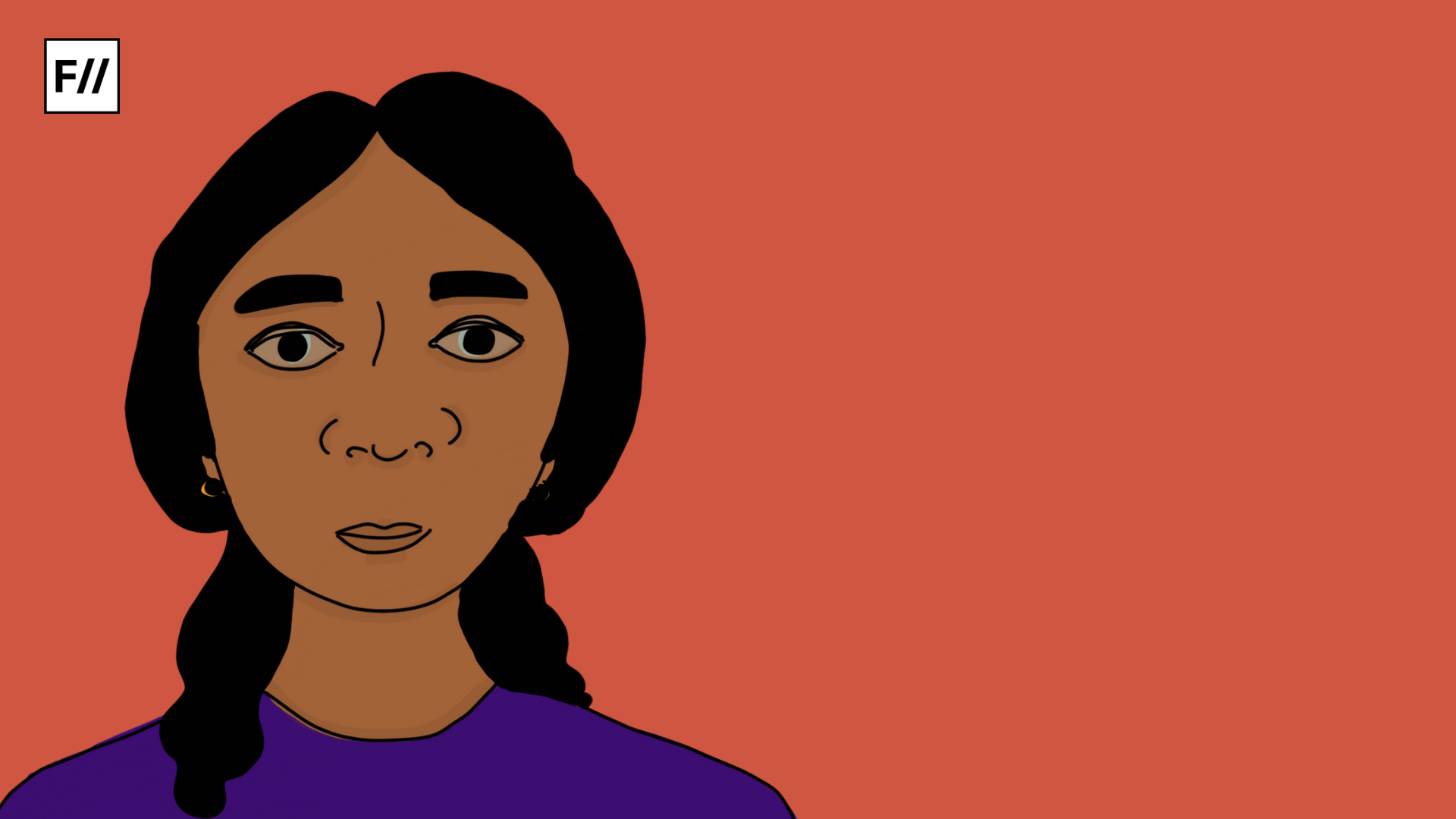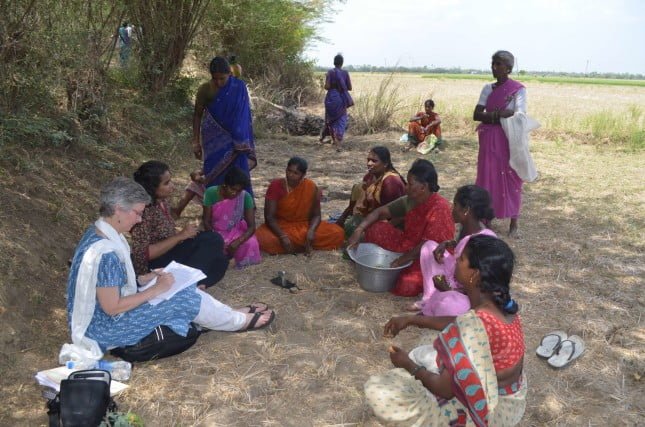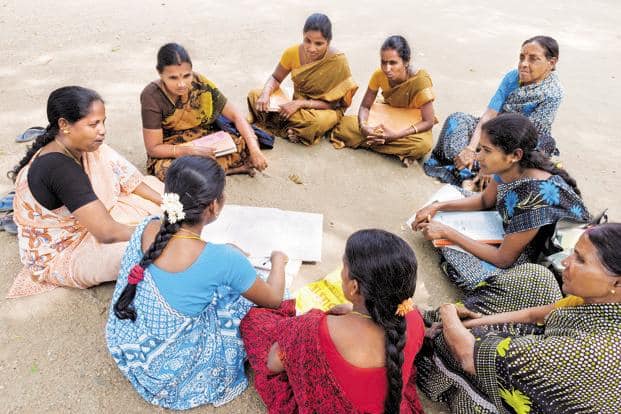My journey as a woman researcher in the rural landscapes of Punjab and Haryana was laden with moments that starkly highlighted gender biases. From being advised on data collection by a large landowner in Sangrur to navigating unwarranted suggestions and personal inquiries, each interaction was a reminder of the entrenched patriarchal norms. My status as an unmarried woman working independently was often met with disbelief and unsolicited advice, underscoring the rigid societal expectations that still persist. Additionally, as I ventured into these regions in 2022, I was acutely aware of my position of privilege in a society deeply divided by caste.
Navigating the labyrinth of patriarchy
My experiences in Punjab and Haryana were more than just fieldwork; it became a journey through the complex interplay of gender, caste, and societal norms. The most pervasive element of my fieldwork was the omnipresent patriarchal structure. Whether it was the probing questions about my marital status, the cautious advice on where to conduct interviews, or the subtle hints at what sort of work was considered “appropriate” for a woman, the gender norms were evident. These norms were not only restrictive but also reflective of a deep-seated resistance to women occupying spaces traditionally dominated by men.
Throughout my journey, I encountered numerous stereotypes about women’s roles and capabilities, whether it was confronting dismissive attitudes or disproving assumptions about a woman’s ability to understand complex political issues. However, the unique challenges I faced also offered me a distinct advantage. As a woman researcher, I was able to gain insights into the lives and perspectives of rural women, who often opened up more readily to me than they might have to a male researcher.
Additionally, as a female researcher, I occupied a unique position. On one hand, my academic pursuits were often met with scepticism or curiosity, while on the other, my presence in these rural settings was seen as a challenge to the established gender order. This dichotomy was not just a personal challenge; it was indicative of the broader societal tensions surrounding gender roles and expectations.
Caste dynamics and fieldwork encounters
In the rural landscapes of Punjab and Haryana, caste played a pivotal role in shaping my fieldwork encounters. My interactions with various communities underscored the deeply ingrained caste consciousness prevalent in these regions. When interviewing landless agricultural laborers and men from Scheduled Castes, I observed a distinct difference in their approach. These groups focused solely on the research topics, refraining from personal inquiries, which contrasted sharply with my experiences with upper-caste respondents.
This realisation brought to light the complex interplay of caste and gender in fieldwork, particularly in a researcher-subject dynamic.
Upper-caste individuals often sought to ascertain my caste, either overtly or covertly, as a precursor to our discussions. This behaviour highlighted the entrenched caste hierarchy and its influence on social interactions. I also noticed that my own caste identity inadvertently granted me easier access to diverse households, a privilege not afforded to many. This realisation brought to light the complex interplay of caste and gender in fieldwork, particularly in a researcher-subject dynamic.
The differential treatment based on caste underscored the varying levels of comfort and openness in my interactions. While upper-caste men occasionally questioned the suitability of my fieldwork as a woman, those from schedule castes demonstrated respect and engagement without overstepping personal boundaries. This disparity not only impacted the quality of information I gathered but also reflected the broader societal attitudes and norms that permeate rural India.
These caste dynamics, woven into the fabric of rural society, were a constant reminder of the layered challenges in conducting field research. They highlighted the necessity of navigating these social structures with sensitivity and awareness, ensuring that my research methodology remained inclusive and respectful of the diverse experiences and perspectives encountered in the field.
Challenges in trust and safety
A recurring theme in my fieldwork was the constant need to balance trust and safety. An invitation from a farmer-cum-businessman to meet at his office raised alarm bells, prompting me to trust my instincts and decline the meeting. Similarly, a late evening call from a personal assistant of a politician left me feeling uneasy, leading to a decision to not engage at that hour. These instances were not just about personal safety; they were reflective of the broader challenges women face in such settings. Interestingly, I observed that men often went out of their way to assist me, which, while helpful, sometimes felt excessive and uncomfortable. This over eagerness to help, though perhaps well-meaning, often left me feeling awkward and wary of their intentions.
Decisions about whom to meet, where to meet, and at what time were not just logistical considerations but safety strategies.
Safety was a paramount concern throughout my fieldwork. Decisions about whom to meet, where to meet, and at what time were not just logistical considerations but safety strategies. The incident with the political assistant’s late-evening call and the property dealer’s insistence on a private meeting were prime examples of the dilemmas I faced regularly, forcing me to be constantly vigilant.

Establishing trust was a constant endeavour, made more complex by the underlying gender dynamics. My interactions were often laced with an undercurrent of scepticism, not just about my work but also about my ability to understand and analyse the political landscape – a domain often considered beyond the purview of women by many of my respondents.
The role of personal identity in fieldwork and research
As I navigated through various villages and interacted with a spectrum of respondents, I realised how my personal identity as a woman, and my caste and class background, played a crucial role in shaping my fieldwork experience. The gendered nature of my fieldwork experience significantly influenced my research methodology.
I found myself constantly adapting my approach, not just to ensure my safety but also to navigate the complex social hierarchies and norms. This adaptability became a crucial tool in gaining access to diverse perspectives and ensuring the comprehensiveness of my data. These aspects influenced not only how I was perceived and treated but also the kind of information and cooperation I received.
Towards a more inclusive field research culture
My experiences in Punjab and Haryana highlight the need for a broader conversation about gender equity in academic fieldwork. The challenges I faced are not unique to me; they are indicative of the systemic barriers that many women researchers encounter. Addressing these issues is essential to ensuring that all researchers, regardless of gender, can conduct their work safely and effectively.

My fieldwork in Punjab and Haryana though started as an academic endeavour but later became an exploration of the intersection of gender and research in rural settings. The experiences I gathered offered a microcosm of the larger societal dynamics at play, where gender roles and expectations deeply influence the conduct and reception of research.
Reflecting on my experiences, it becomes evident that there is a pressing need to foster a more inclusive culture in field research.
Reflecting on my experiences, it becomes evident that there is a pressing need to foster a more inclusive culture in field research. This includes creating supportive networks for women researchers, addressing safety concerns, and promoting an environment where diverse perspectives are valued and respected.
Final reflections and moving forward
As I conclude my fieldwork in Punjab and Haryana, I carry with me not just data and insights for my PhD thesis, but also profound personal growth. The journey has been both challenging and enlightening, highlighting the need for continued dialogue and action on gender equity in academic research. Moving forward, I hope my experiences can contribute to this dialogue and pave the way for future researchers, particularly women, to undertake their fieldwork with greater support and recognition.
About the author(s)
Ritika, a PhD candidate specializing in Indian politics at IIT Guwahati, loves feline companions and coffee, and finds solace in the mountains.







